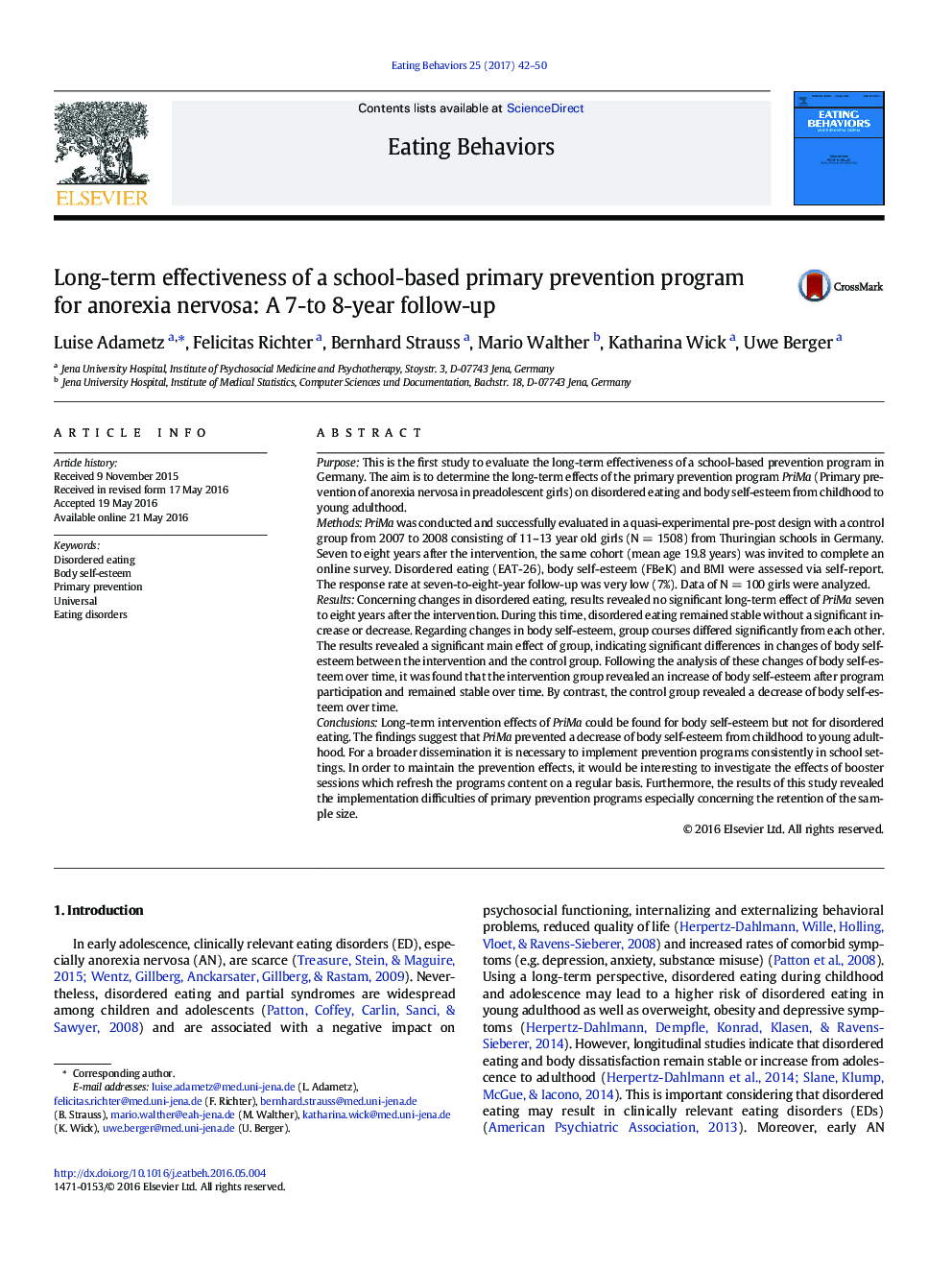| کد مقاله | کد نشریه | سال انتشار | مقاله انگلیسی | نسخه تمام متن |
|---|---|---|---|---|
| 5038773 | 1472878 | 2017 | 9 صفحه PDF | دانلود رایگان |
- Long-term effectiveness of a primary prevention program for girls was examined.
- Disordered eating & body self-esteem were assessed 7 to 8Â years after intervention.
- PriMa prevented a decrease of body self-esteem in the intervention group.
- No significant intervention effect for disordered eating was found.
PurposeThis is the first study to evaluate the long-term effectiveness of a school-based prevention program in Germany. The aim is to determine the long-term effects of the primary prevention program PriMa (Primary prevention of anorexia nervosa in preadolescent girls) on disordered eating and body self-esteem from childhood to young adulthood.MethodsPriMa was conducted and successfully evaluated in a quasi-experimental pre-post design with a control group from 2007 to 2008 consisting of 11-13Â year old girls (NÂ =Â 1508) from Thuringian schools in Germany. Seven to eight years after the intervention, the same cohort (mean age 19.8Â years) was invited to complete an online survey. Disordered eating (EAT-26), body self-esteem (FBeK) and BMI were assessed via self-report. The response rate at seven-to-eight-year follow-up was very low (7%). Data of NÂ =Â 100 girls were analyzed.ResultsConcerning changes in disordered eating, results revealed no significant long-term effect of PriMa seven to eight years after the intervention. During this time, disordered eating remained stable without a significant increase or decrease. Regarding changes in body self-esteem, group courses differed significantly from each other. The results revealed a significant main effect of group, indicating significant differences in changes of body self-esteem between the intervention and the control group. Following the analysis of these changes of body self-esteem over time, it was found that the intervention group revealed an increase of body self-esteem after program participation and remained stable over time. By contrast, the control group revealed a decrease of body self-esteem over time.ConclusionsLong-term intervention effects of PriMa could be found for body self-esteem but not for disordered eating. The findings suggest that PriMa prevented a decrease of body self-esteem from childhood to young adulthood. For a broader dissemination it is necessary to implement prevention programs consistently in school settings. In order to maintain the prevention effects, it would be interesting to investigate the effects of booster sessions which refresh the programs content on a regular basis. Furthermore, the results of this study revealed the implementation difficulties of primary prevention programs especially concerning the retention of the sample size.
Journal: Eating Behaviors - Volume 25, April 2017, Pages 42-50
